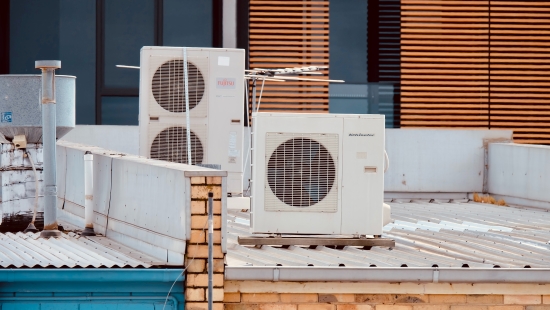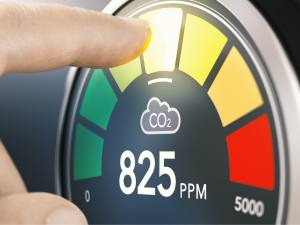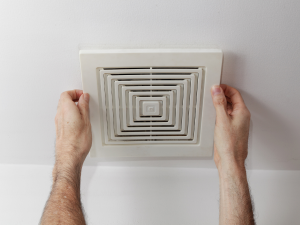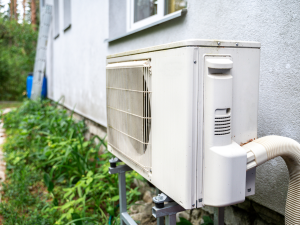Heating, ventilation, and air conditioning systems are vital for any industrial, residential, or commercial building. The systems are the reason why we can enjoy a comfortable indoor temperature even when the outside temperature is not favorable. HVAC systems control the temperature, humidity, and air quality in spaces where they are installed.
Choosing the right HVAC system not only ensures that an optimal temperature in a building is maintained but also impacts utility bills. There are different types of HVAC systems for commercial buildings. And getting the right system is vital. For assistance, you can contact your local AC Technician.
If you are planning on buying or replacing commercial building HVAC systems, it is important to understand the different HVAC systems and how they work.
Here are three types of HVAC systems for commercial buildings:
1. Split HVAC systems
This HVAC system is named based on its components and how it’s set up. Among its components is an outdoor unit, indoor unit, filtration system, ductwork, and a non-programmable and programmable thermostat.
The types of commercial HVAC split systems include:
- Single-split commercial air conditioner
Great for small commercial spaces such as small offices, cafes, or shops, single-split air conditioners are among the most popular types of commercial HVAC systems chosen by business owners. A single-split system consists of an air conditioner, refrigerant, an evaporator coil, and a furnace. These components work together to ensure optimal circulation of cool air and heat through the ducts. Single split systems can be controlled using a control panel or a thermostat.
What are the advantages of commercial HVAC split systems?
- Each unit is self-controlled. As such, if one unit breaks down, the others can continue working optimally. This is a great advantage when installed in commercial buildings.
- They are cheaper to install compared to other types of commercial HVAC systems.
- They are energy efficient since each unit can be used to deliver air conditioning only for the room that requires it.
- If a building has a room that requires additional air conditioning, the single-split system is the best fit.
What are the cons of a single-split commercial air conditioning system?
- The single-split commercial air conditioning systems can take up lots of space since an outdoor unit is required for each indoor unit.
- Multi-split air conditioning system
Similar to single-split air conditioning systems, multi-split HVAC systems only allow the connection of up to nine indoor units to a single larger outdoor unit. It is the perfect choice for medium-sized spaces such as those that have multiple floors. A multi-split HVAC system has sensors that detect changes in temperatures, hence reducing energy consumption. They also use heat pumps as opposed to traditional furnaces. As such, they save a lot of energy.
What are the advantages of multi-split HVAC systems?
- They take up less space since one outdoor unit can serve several indoor units.
- They maintain a building’s external appearance.
- They can be installed even in buildings that do not have ductwork.
What are the disadvantages of multi-split HVAC systems?
- They are expensive to install.
- They require a lot of pipework; hence the installation takes longer.
2. CAV and VAV systems
Variable Air Volume (VAV) and Constant Air Volume (CAV) are two different types of HVAC systems for commercial buildings that have similar functionality.
- CAV systems
Ideal for commercial spaces, CAV systems use a compressor that operates at full capacity to achieve the required temperature in the building. Warehouses and manufacturing settings commonly use this HVAC system.
What are the advantages of CAV HVAC systems?
- They are ideal for spaces that have high ventilation demands.
What are the disadvantages of CAV HVAC systems?
- They produce a fixed air volume. This can translate to high energy costs even in spaces that do not mandate a high airflow.
- They are not efficient at controlling humidity.
- VAV systems
These are the best commercial building HVAC systems in setups that have varying cooling and heating needs. As such, they are more energy-efficient compared to CAV systems.
What are the advantages of VAV systems?
- They use up less energy which translates to low energy bills.
- They are great at controlling temperature and humidity.
- They are a great option for buildings that have various ventilation needs.
What are the disadvantages of VAV systems?
- They take up a lot of space.
- The installation process is complex and expensive.
3. VRF HVAC systems
Variant Refrigerant Flow (VRF) HVAC systems are ideal for mid-sized spaces. These systems are categorized into the following:
- Heat pump VRF systems
These systems can cool and heat a building at once. They are common in buildings that have an open floor plan.
- Heat recovery VRF systems
Common in buildings, these systems can heat and cool a space simultaneously.
What are the advantages of VRF systems?
- Both heat pump and heat recovery VRF systems are easy to install and use.
- They are highly reliable and efficient.
- They are more lightweight compared to other HVAC systems.
What are the disadvantages of VRF systems?
- They are expensive to install.
- If the unit breaks down, the entire system is affected.
What factors should be considered when selecting types of HVAC systems (commercial)?
Sizing– Commercial settings have varying cooling and heating needs. Choosing an HVAC system for commercial spaces can be a complex process. When buying the system, it is vital to know how much cooling and heating is required. This can be based on the building’s thermal and physical characteristics and size. It is important to contact an HVAC expert when selecting the types of HVAC systems for commercial buildings.
Efficiency- Energy efficiency should not be ignored when selecting an HVAC system. High-efficiency units ensure indoor comfort at a lower cost. This translates to low energy bills. When purchasing commercial HVAC units, be sure to check the SEER rating, heating seasonal performance factor (HSPF), and annual fuel utilization efficiency (AFUE).
Upfront cost- A new commercial HVAC system is a major investment. While most commercial systems are not cheap, do not just look at the price tag. Consider other factors such as efficiency. Most cheap commercial HVAC systems may necessitate more frequent maintenance or have a shorter lifespan.
Add-ons- Do you need an HVAC system that has extra perks? For instance, some building owners may require systems that have monitoring capabilities or remote control. Also, be on the lookout for preferred designs as well as limitations due to issues such as space.








